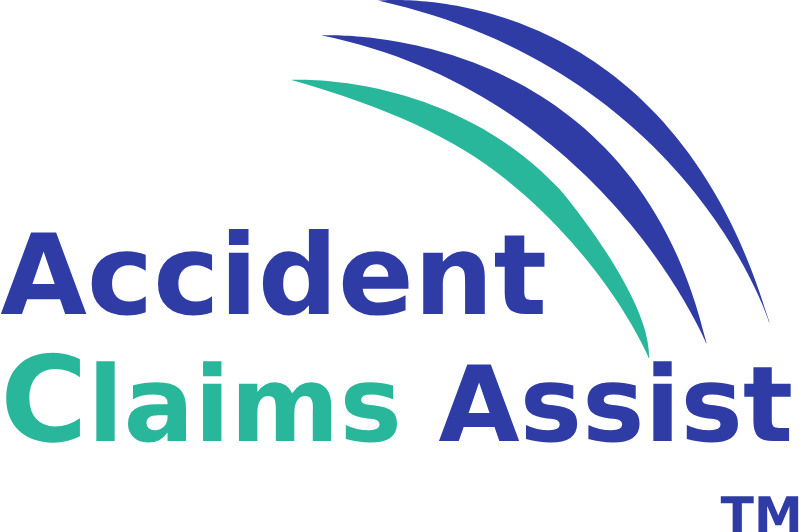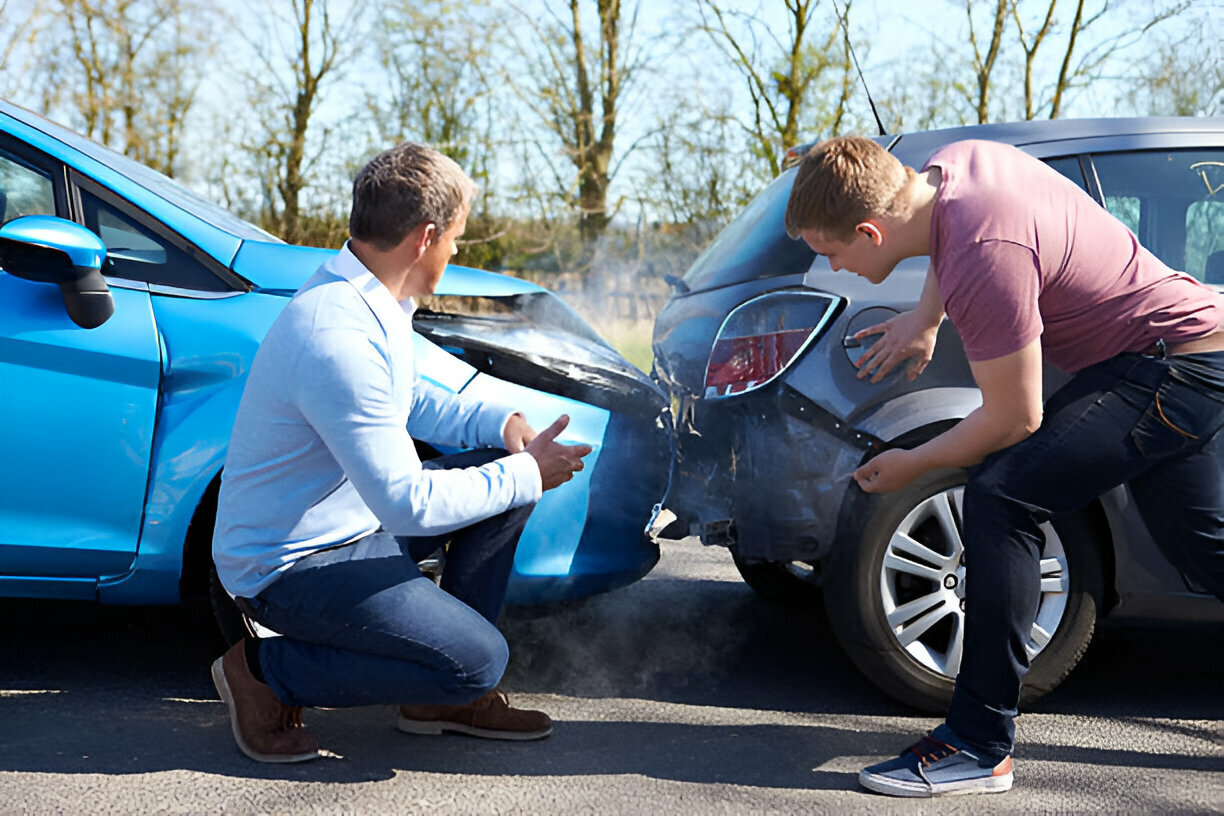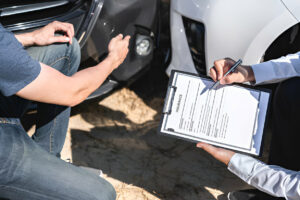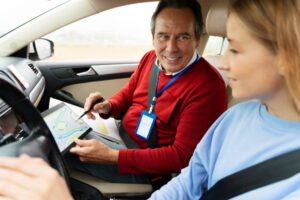Road traffic accidents affect our lives and leave us in shock and fear. The fear of memory of the accident can trigger severe psychological disorders such as anxiety, fear, headaches and panic. Attacks, sleeping disorders.
The physical and psychological effects after an accident, including injuries because of the accident, can also have psychological effects.
Psychological disorders, such as anxiety and depression, can have a substantial effect on the immune system. For instance, prolonged stress from these disorders can weaken the immune system, making you more susceptible to illnesses. Additionally, sleeping can be difficult due to these disorders, leading to issues such as insomnia and nightmares. Emotional and psychological issues can have effects on your daily living, work, and physical injury recovery. You may fear travelling and driving a car, making it difficult for you to go out of your home, go to work, go for medical treatment, and other inconveniences.
Post-Traumatic Stress Disorders
Post-traumatic stress disorder, a psychological disorder caused by complex and traumatic circumstances, is more common than you might think. Individuals who have PTSD or similar symptoms cannot recover, and the condition may become worse. Motor vehicle accidents can be a cause of PTSD, and you are not alone in this struggle.
The study found that the individuals experience post-traumatic stress disorder after a car accident:
- Individuals with a previous history of psychological issues.
- Victims who were not at fault.
- Female survivors of the accident.
Psychological disorders can be
- Flashbacks
- Nightmares
- Trouble sleeping
- Emotional distress
- Detachment from loved ones & Family
- Difficulty concentrating
- Aggressive Behaviour
- Mood swings
- Anxiety
- Depression
- Feelings of hopelessness
Panic& Anxiety Attacks
Anxiety can be because of a road accident. Even if we are driving the car again, it can cause fear, panic attacks, and anxiety.
When you think about driving the car again after the accident, your heart starts beating, your breath becomes short, and your hands start shaking. Some car accidents have a deep effect on driving or travelling, while other people feel safe on the road.
Depression
The remnants of car accidents often suffer from post-accident stress, emotional numbness, and depression.
This may be due to the sudden loss of mobility or memorizing the accident in your mind. You might find yourself withdrawing from family members or losing interest in things that used to bring you happiness before the accident.
Guilt and Anger
Feelings of guilt and anger are also common emotional effects of accidents, especially when the accident causes some unrecoverable loss.
Behavioural Changes
The psychological consequences of an accident affect different people and vary from age to age.
The psychological effects and post-accident trauma on children and minors are different than adults. Kids may be unable to understand what happened, leading them to express their behavioural changes.
Nightmares, separation anxiety, and fear of travel are common reactions for individuals. The children also exhibit mood swings as they try to figure out feelings they do not understand.
While older adults can feel worse psychological effects after a car accident, they may have less confidence to drive on the road or get around after a car accident.
For older people, the recovery process can be slow, and the psychological impact effects may be heavier because of physical and emotional limitations.
The psychological effects can be different from gender to gender and how they deal with the impact of a car accident. Other studies show that women can seek emotional support and discuss their feelings after the accident, which can lead to faster recovery.
According to recent research and studies, the most common cause of trauma is in 32% of males and 13% of females after an accident.
Social and Professional Effects
The consequences of a car accident affect the victim and relationships with family members and loved ones.
Communicating your social needs or feelings is difficult, as you must eliminate family members and loved ones.
Strategies to Recover
We can recover from the trauma and psychological effects.
Professional Assistance
Seeking professional attention is a crucial step toward recovery from the psychological effects of a car accident. Therapists can provide treatments like Cognitive Behavioural Therapy, which is designed to help you recover from negative thoughts and depression. You are not alone in this journey, and there are professionals ready to guide you.
Approaches to Recover
Apart from therapy, accident victims find they recover through meditation and yoga. These therapies and meditation reduce anxiety and emotional numbness.
These approaches also reduce the accident memories and flashbacks associated with PTSD and other psychological disorders. Regular exercise also helps us improve mental health after a car accident.
Emotional Support
Our loved ones and friends play an essential role in your post-accident recovery. Their support can make a significant difference. By letting them know what you are feeling and accepting their support, you can reduce feelings of isolation and emotional distress. The people who understand your needs and are willing to create a safe and supportive environment for your healing are invaluable in your recovery journey.
The people who understand your needs and are willing to create a safe and supportive environment for your healing are supportive.
Therapies and Treatment Effects
It’s normal to have flashbacks and nightmares of the accident for days, weeks, or even months after a car accident. Remember that whatever you’re feeling is okay. There is no right or wrong in this process, and your feelings are valid.
- Accept your feelings. Your recovery will slow down if we ignore the feelings.
- Don’t think about the accident. Try to divert your attention or engage yourself in work.
- Follow your routine for comfort.
- Do not make any decisions while you recover.
- Do not read or listen to the news of the accident.
- Be patient with yourself.
- Overcome your sense of helplessness by taking positive actions, such as volunteering your time, donating to good causes, or helping people in need.
- Avoid isolating yourself. Connecting to others after a trauma can help you access support and feel less alone.
- Exercise. This can release positive feelings and burn off adrenaline.
- Adopt stress management techniques, such as breathing exercises and relaxation techniques, to help you through stressful moments.
- Consume a healthy diet.
- Make sleep a priority. Sleep can be difficult when dealing with trauma, but lack of sleep can exaggerate negative emotions and make it more challenging to make positive choices.
- Seek one-on-one counselling or a support group if your feelings haven’t improved within four to six weeks, significantly if your symptoms are disrupting daily activities or causing suicidal thoughts.
Compensation for Psychological Effects after an accident
Your compensation for psychological disorders depends on the severity and how long you have been suffering from it. To understand this, here is an example: If you have recovered from the PTSD symptoms within 2 years from the accident to recovery, you can have a compensation amount between £4,000 – £8,000 for final settlement. However, it’s important to note that these figures are for illustrative purposes only, and the actual compensation amount can vary based on individual circumstances and the laws of your jurisdiction.






